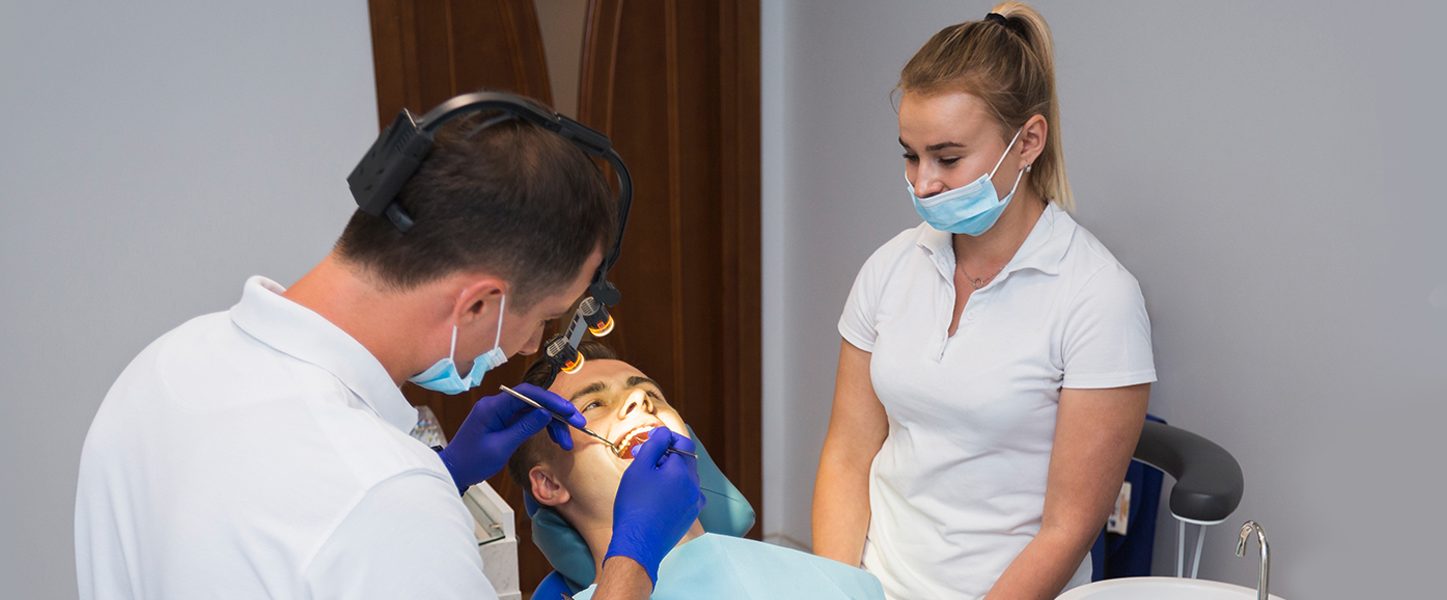What to Expect During Your Dental Implant Surgery and Recovery
July 1, 2025
Considering dental implants to substitute a lost tooth or teeth? You’re not alone. Dental implants have become one of the most reliable and natural-looking options in modern dentistry. But if you’re unsure what happens during the surgery, or what recovery feels like, knowing what to expect can help ease the nerves.
At Dental Therapy, we often walk patients through implant procedures step by step to make the experience more predictable and less intimidating. If you’re searching for a trusted dentist in Phoenix, AZ, this guide is for you.
What Is a Dental Implant?
A dental implant is described as a small, titanium screw that acts as a substitute root for a missing tooth. It’s surgically placed into your jawbone and supports a crown, bridge, or denture. Over time, the implant bonds with your bone, offering a permanent and sturdy solution that feels and functions like a natural tooth.
Unlike dentures or bridges, implants don’t slip, shift, or rely on other teeth for support, making them a popular long-term option for restoring oral health.
The Consultation: Planning for Success
Before anything is placed, your dentist will assess your health and bone structure. This visit may include:
- Digital X-rays or a 3D scan
- A review of your medical history
- An oral exam to check gum health
- Discussion of any required extractions or bone grafts
This consultation ensures that your jaw is ready to hold the implant and that no other conditions, like gum disease, could interfere with healing.
The Day of Surgery: What Really Happens?
The idea of oral surgery may sound daunting, but dental implant procedures are generally straightforward and less invasive than people expect.
Here’s what to expect during the procedure:
- Numbing the area – Local anesthesia keeps you comfortable
- Incision – A small cut is made in your gum to access the jawbone
- Implant placement – The titanium post is gently inserted
- Stitches (if needed) – Gums are sutured to aid healing
- Temporary crown – In some cases, a temp crown is placed immediately
The whole process can take 1–2 hours, depending on how many implants you’re receiving.
Most people report only mild discomfort afterward, similar to what you might feel after a tooth extraction.
Post-Surgery Recovery: What You’ll Feel
Healing begins right after your appointment. For the first 48–72 hours, you may notice:
- Swelling or tenderness in your jaw
- Minor bleeding or oozing
- Difficulty chewing on that side
- Slight bruising or discomfort
These are all normal. Most people manage well with over-the-counter pain relief and rest.
Quick Tips to Make Recovery Smoother
To heal quickly and avoid complications, follow your dentist’s post-op instructions closely. Here are some helpful tips:
- Apply ice packs on the outside of your cheek for the first 24 hours
- Stick to soft food items like mashed potatoes, scrambled eggs, and smoothies
- Avoid hot or spicy foods for the coming few days
- Don’t use a straw—it can dislodge the clot and delay healing
- Sleep with your head elevated in order to decrease swelling
- Brush gently around the surgical site, avoiding direct contact
What Happens Next: Osseointegration and Crown Placement
Once the implant is in place, the next phase is osseointegration—when the jawbone grows around and secures the implant. This can take 3 to 6 months, depending on your healing process and bone density.
Once fully healed, your dentist will:
- Place an abutment (a connector piece) on the implant
- Take impressions to create your custom crown
- Attach the crown securely
You walk out with a new tooth that feels, looks, and functions just like the real thing.
Common Questions About Implant Surgery
Does it hurt?
Most patients say the surgery itself is painless, thanks to local anesthesia. Post-op soreness usually fades within a few days.
Can I go back to work the next day?
Many people return to work within 1–2 days, depending on how they feel.
What if I need more than one implant?
Your dentist may place them all in one visit or stage them over time. Each case is unique.
How long will the implant last?
With good care, dental implants can last 20 years or longer.
Why Choose a Trusted Dental Team?
Implant success isn’t just about hardware—it’s about the people behind it. A trusted dental clinic in Phoenix, AZ will use advanced technology, personalized care, and thorough planning to reduce risks and increase comfort.
You want a provider who communicates clearly, monitors healing, and supports you at every stage. That makes all the difference.
Short List: Benefits of Dental Implants
Still wondering if it’s worth it? Here’s what you gain:
- Permanent solution to missing teeth
- Natural appearance and feel
- No slipping or clicking
- Preserves jawbone and facial shape
- Boosts confidence and self-esteem
- Restores full bite function
Implants are one of the best investments you can make in your dental future.
Final Thoughts
Dental implant surgery is much more than just a fix for missing teeth—it’s a step toward a healthier, more confident you. With the right guidance and proper care, the experience is easier than you think.
From consultation to recovery, your dental team ensures your comfort and safety every step of the way. Whether you’ve lost a tooth due to injury or decay, implants offer a lasting solution that blends seamlessly into your life.
If you’ve been searching for a ‘dentist near me’ who can help you regain your smile, Dental Therapy is ready to help. Book a consultation today and take the first step toward a stronger, more confident smile.

Dr. Tahany Whiting, DMD.
Dr. Whiting is a dedicated Arizona native who combines clinical excellence with a warm, patient-focused approach. After earning her Doctorate in Dental Medicine from Midwestern University, she is passionate about educating patients and customizing treatment plans.
Her mission is simple: to treat every smile with thoughtful, evidence-based care and compassion.
Why patients choose Dr. Whiting:
- Over 10 years of experience in General & Biologic Dentistry
- Graduate of Midwestern University College of Dental Medicine (DMD, 2014)
- Member of AAID, AGD, IABDM, and ICOI
- Attends advanced training and international dental conferences regularly
